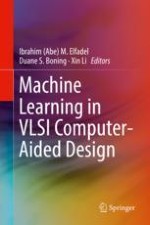2019 | OriginalPaper | Buchkapitel
6. Machine Learning Approaches for IC Manufacturing Yield Enhancement
verfasst von : Hongge Chen, Duane S. Boning
Erschienen in: Machine Learning in VLSI Computer-Aided Design
Aktivieren Sie unsere intelligente Suche, um passende Fachinhalte oder Patente zu finden.
Wählen Sie Textabschnitte aus um mit Künstlicher Intelligenz passenden Patente zu finden. powered by
Markieren Sie Textabschnitte, um KI-gestützt weitere passende Inhalte zu finden. powered by
